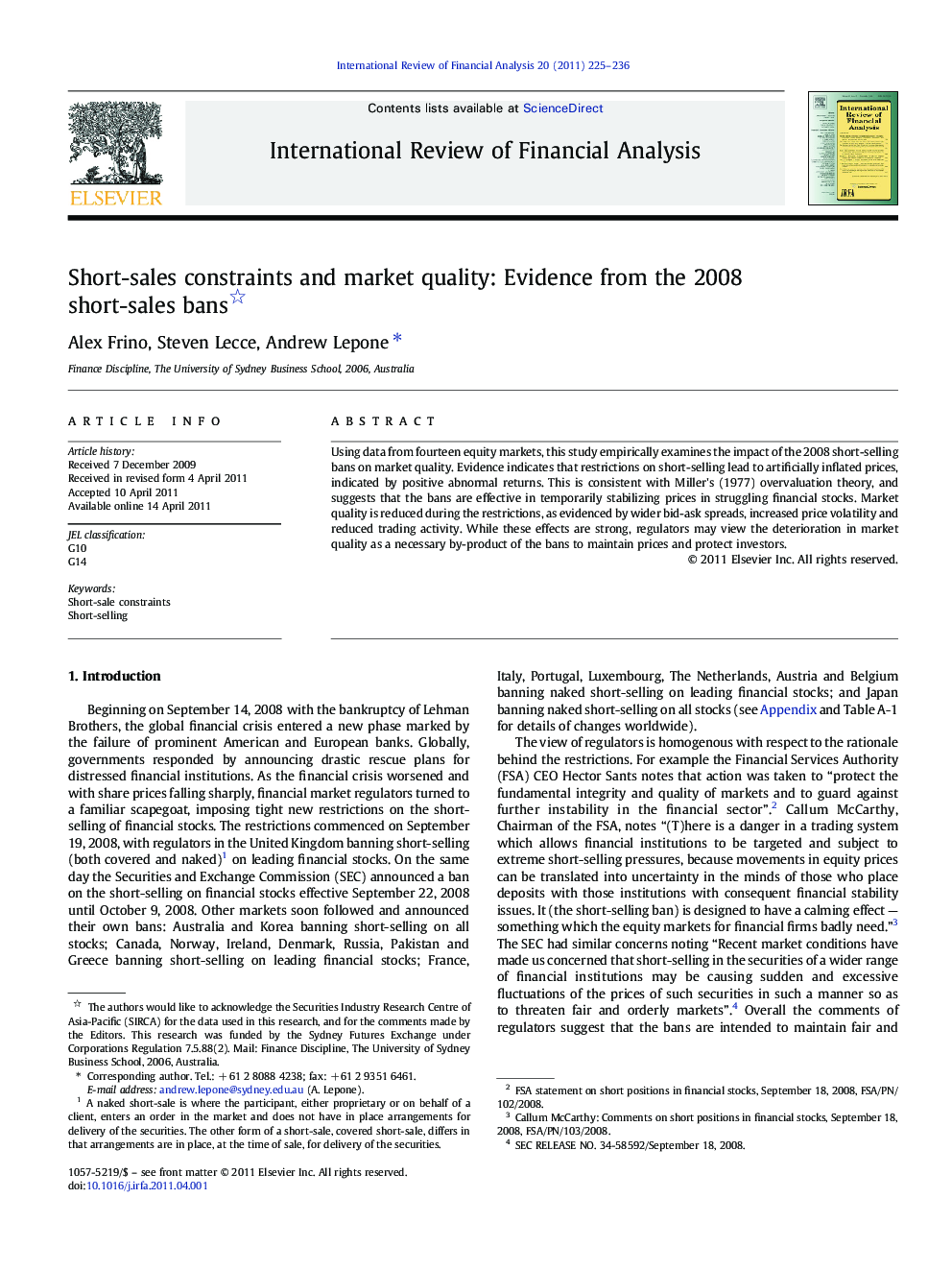| Article ID | Journal | Published Year | Pages | File Type |
|---|---|---|---|---|
| 5085172 | International Review of Financial Analysis | 2011 | 12 Pages |
Abstract
Using data from fourteen equity markets, this study empirically examines the impact of the 2008 short-selling bans on market quality. Evidence indicates that restrictions on short-selling lead to artificially inflated prices, indicated by positive abnormal returns. This is consistent with Miller's (1977) overvaluation theory, and suggests that the bans are effective in temporarily stabilizing prices in struggling financial stocks. Market quality is reduced during the restrictions, as evidenced by wider bid-ask spreads, increased price volatility and reduced trading activity. While these effects are strong, regulators may view the deterioration in market quality as a necessary by-product of the bans to maintain prices and protect investors.
Related Topics
Social Sciences and Humanities
Economics, Econometrics and Finance
Economics and Econometrics
Authors
Alex Frino, Steven Lecce, Andrew Lepone,
